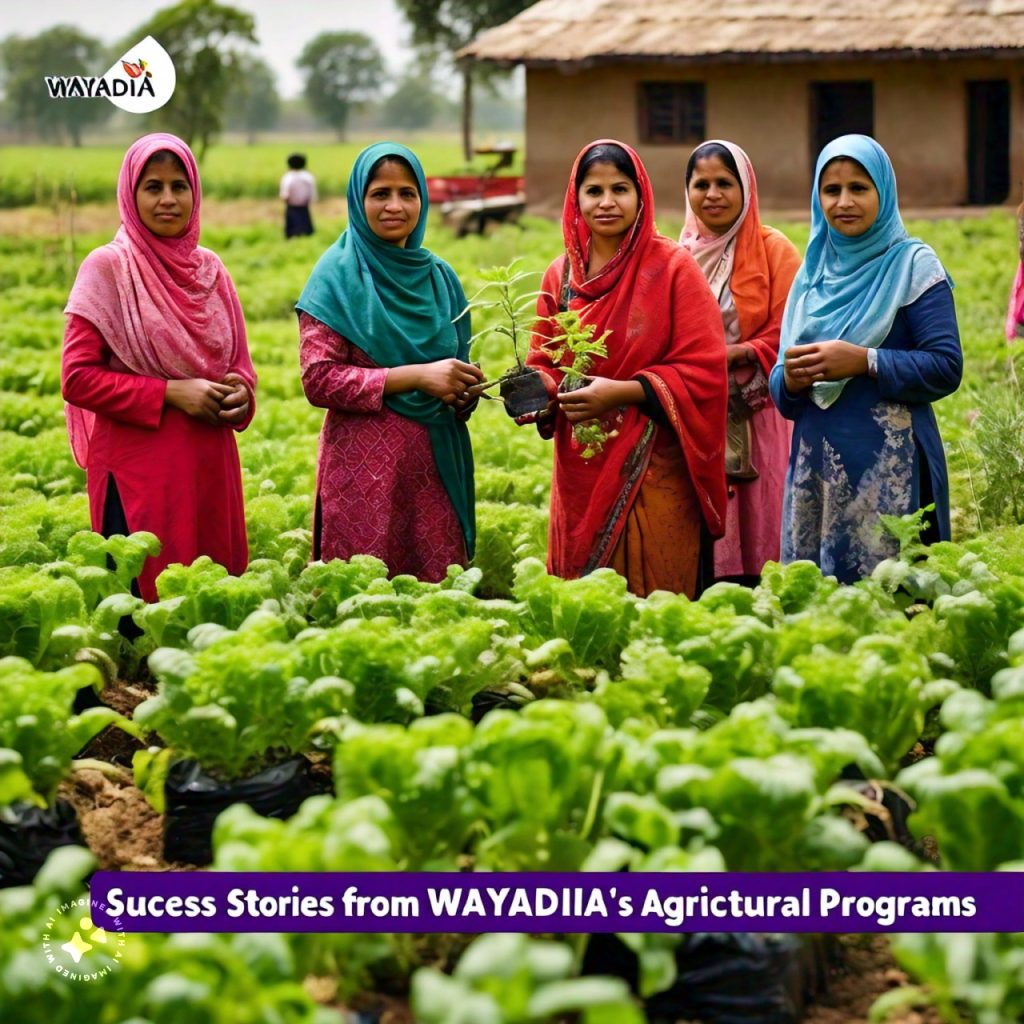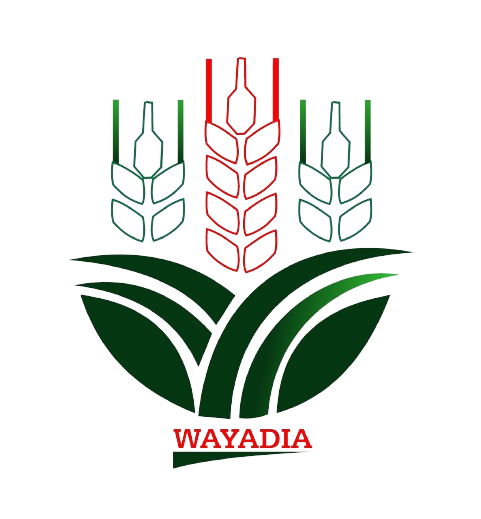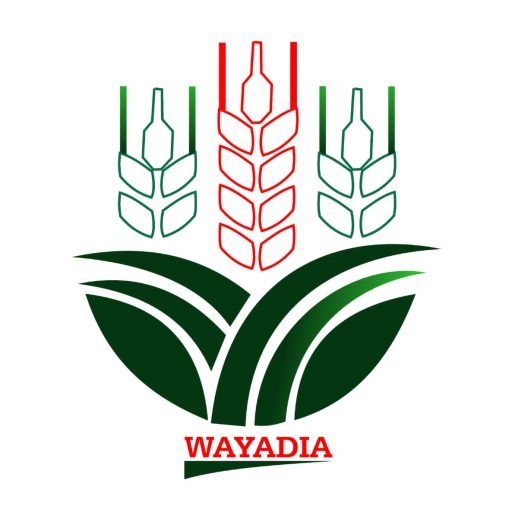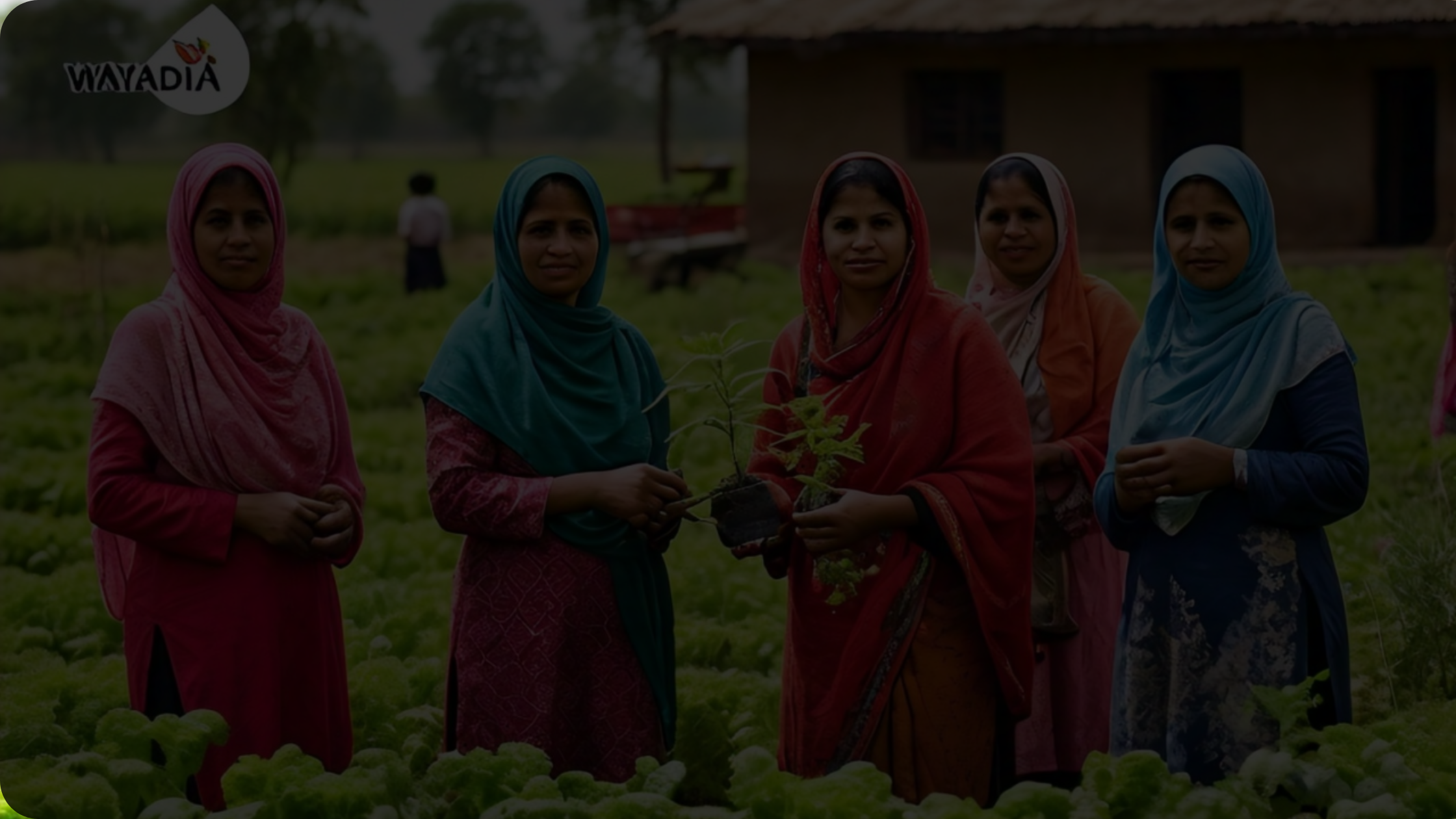
In many parts of Africa, women play a crucial role in agriculture, yet they often lack access to the resources, training, and support needed to maximize their potential. WAYADIA (Women and Youths Agricultural Development Initiative in Africa) has been at the forefront of addressing these challenges, empowering women farmers through comprehensive agricultural programs. This blog explores the transformative impact of these initiatives, showcasing inspiring success stories and the positive outcomes in terms of productivity and community development.
“WAYADIA’s agricultural training program transformed my small farm into a thriving business. With their support, I learned sustainable farming techniques that significantly increased my yield and improved the quality of my produce.” — Jane Mwangi
The Need for Empowerment
Women farmers face numerous barriers, including limited access to land, credit, education, and technology. These challenges hinder their productivity and economic independence. Recognizing the need for change, WAYADIA launched a series of agricultural programs aimed at equipping women with the skills, knowledge, and resources they need to succeed.
Comprehensive Training Programs
WAYADIA’s agricultural training programs cover a wide range of topics, from sustainable farming practices and crop management to financial literacy and market access. By providing hands-on training and ongoing support, these programs ensure that women farmers are well-equipped to apply new techniques and improve their yields.
Sustainable Farming Practices
One of the core components of WAYADIA’s training is sustainable farming practices. Women learn how to utilize organic fertilizers, implement crop rotation, and adopt water-saving irrigation methods. These practices not only boost productivity but also protect the environment, ensuring long-term agricultural sustainability.
Financial Literacy and Market Access
In addition to farming techniques, WAYADIA emphasizes the importance of financial literacy and market access. Women farmers receive training on budgeting, saving, and managing loans. They also learn how to access local and regional markets, enabling them to sell their produce at fair prices and increase their incomes.
Success Stories: Transforming Lives and Communities
The impact of WAYADIA’s agricultural programs can be seen in the success stories of women farmers who have transformed their lives and communities. Here are a few inspiring examples:
Jane Mwangi: From Subsistence to Prosperity
Jane Mwangi, a farmer from Kenya, struggled for years to make ends meet. Her small farm produced just enough to feed her family, with little left over to sell. After joining WAYADIA’s agricultural training program, Jane learned sustainable farming techniques that significantly increased her yields. With better crop management and access to quality seeds, she began producing surplus vegetables and grains.
Jane’s newfound productivity allowed her to sell produce at local markets, generating a steady income. She reinvested her earnings into her farm, purchasing tools and equipment that further boosted her productivity. Today, Jane’s farm is a thriving business, and she employs several community members, creating jobs and contributing to local economic growth.
Amina Yusuf: Building a Community of Empowered Women
Amina Yusuf, a farmer from Nigeria, faced significant challenges due to gender discrimination and lack of resources. Through WAYADIA’s training, she gained valuable skills in sustainable farming and financial management. Amina didn’t stop at improving her own farm; she became a mentor for other women in her community.
Amina organized local training sessions, sharing her knowledge and experiences with other women farmers. Her efforts led to the formation of a cooperative, where women support each other, share resources, and collectively market their produce. The cooperative has empowered many women, fostering a sense of solidarity and significantly improving their economic status.
Sarah Kamau: Innovating for a Sustainable Future
Sarah Kamau, a young farmer from Uganda, was passionate about agriculture but lacked the technical knowledge to maximize her farm’s potential. WAYADIA’s program introduced her to innovative agricultural technologies, such as drip irrigation and organic pest control. Sarah’s adoption of these technologies not only increased her farm’s productivity but also reduced environmental impact.
Sarah’s success inspired her to start an agricultural consultancy, providing advice and training to other young farmers in her region. Her consultancy has become a vital resource, promoting sustainable practices and encouraging youth participation in agriculture.
Community Development and Beyond
The benefits of WAYADIA’s agricultural programs extend beyond individual farmers. As women increase their productivity and incomes, they invest in their families and communities. Improved household incomes lead to better access to education, healthcare, and nutrition for children, breaking the cycle of poverty.
Communities also benefit from the environmental sustainability promoted by WAYADIA’s training. Sustainable farming practices help conserve natural resources, ensuring that land remains fertile and productive for future generations. Moreover, the economic empowerment of women contributes to social stability and gender equality, creating more resilient and prosperous communities.
Conclusion
WAYADIA’s agricultural programs are transforming the lives of women farmers across Africa. By providing comprehensive training, resources, and support, WAYADIA empowers women to overcome barriers, improve their productivity, and achieve economic independence. The success stories of Jane, Amina, Sarah, and many others highlight the profound impact of these initiatives, demonstrating that when women are empowered, entire communities thrive.
Join us in supporting WAYADIA’s mission to empower women farmers and create a brighter, more sustainable future for Africa. Together, we can make a lasting difference.
For more information on how you can get involved or donate to support our programs, please visit our website WAYADIA.


